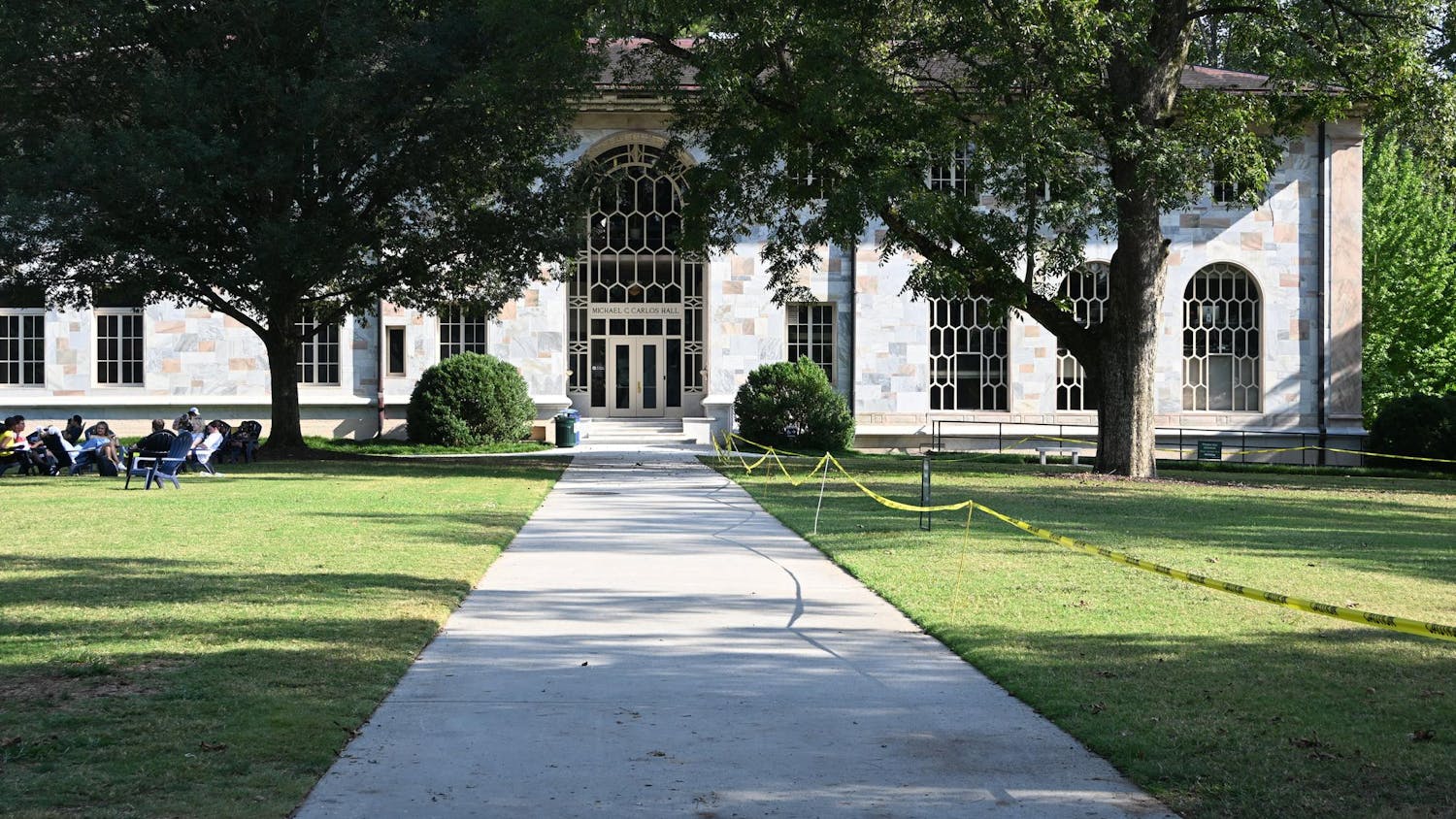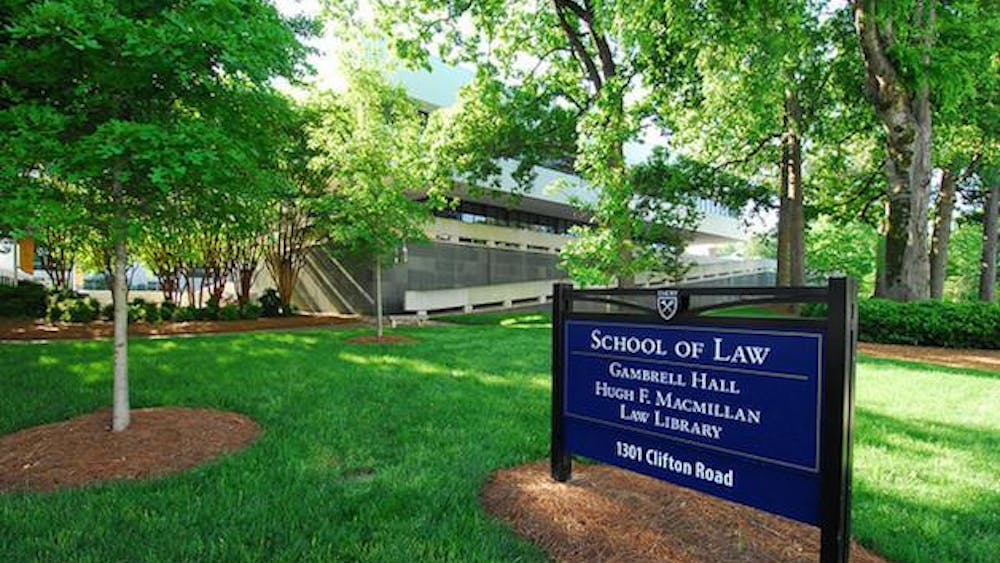Emory University’s Persian Cultural Association (PCA) hosted a Persian New Year celebration in the Emory Student Center on March 25, marking the first time the holiday, called Norooz, was formally celebrated on campus, according to PCA President Katherine Khayami (25C).
A team of about 15 people organized the event, working on publicity, catering and funding, as well as organizing the music and dance competition, Khayami said. The Emory College Language Center, the Middle Eastern and South Asian Studies department, the Belonging and Community Justice offices, the Laney Graduate Student Council and the International Graduate Students and Scholars of Emory sponsored the event.
Khayami said the celebration was a great opportunity for PCA to spread Persian culture.
“Persian New Year is very important for Emory’s Iranian community,” Khayami said.
PCA prepared several tables containing objects that represent Persian culture, including eggs that attendees could draw on and signs honoring the “Women, Life, Freedom” movement, which is a wave of Iranian women protesting against compulsory veiling and demanding a role in politics. Additionally, there were traditional musical instruments, Persian porcelain, books, calligraphy and a table of haft-sin — an altar that contains seven items that start with the letter “S” in the Persian alphabet, representing prosperity and spring, Khayami said. PCA’s traditional haft-sin had apples to symbolize beauty, garlic to symbolize health, wheat to symbolize rebirth and growth, sweet pudding to symbolize sweetness, dried oleaster fruit to symbolize love, vinegar to symbolize age and patience and sumac to symbolize a new beginning.

PCA’s event reflected how Persian families traditionally celebrate the new year, complete with food and dancing, Khayami said.
Families typically arrange their haft-sin before the beginning of Norooz and leave the table in their house until the last day of the new year, which lasts for 13 days.
Nazif Azizi (25C) said his family prepares haft-sin for the Persian New Year because it represents a better year, safety, health and good luck.
“It's mostly just family getting together and spending time together and dancing,” Khayami said. “I would spend Persian New Year with my family every year doing something like this, so it's so special to do it with the Emory community.”
Emory research specialist Nadia Hossainy added that the event felt “nostalgic.”
“It's a good opportunity to connect to my culture, as well as connect to some people from Iran,” Hossainy said.
PCA Vice President Leila Keshavarz (25C) hosted the dance competition and invited people to follow along with Persian dance videos onstage, including the traditional ghasemabadi dance.
After the dance competition, attendees enjoyed a dinner of kebab and rice, a good representation of Iranian food, Keshavarz said.
Keshavarz explained that it is important for her to recognize her roots, adding that celebrating her culture gives her a sense of belonging. She typically spends the Persian New Year with her family, attending parties with hundreds of people.
“Even though I wasn’t here with my family members, I am so close with the people at Emory that I feel like they are basically a second family,” Keshavarz said. “It was just like having family here and being able to celebrate, being able to dance.”
After dinner, Khayami invited people to film a TikTok challenge, #calmdownchallenge and #womenlifefreedom, dancing to Rema’s song calm down. Five weeks ago, five Iranian girls filmed a TikTok video while dancing to the song calm down in public without wearing hijabs, which is prohibited in Iran. The girls were then detained.
“Now, it's a mystery what had happened to them,” Khayami said. “We wanted to honor their freedom that was taken from them. So, all around the world, especially Iranian girls, they have been doing the dance in solidarity.”
Iranian girls dancing to the challenges is an “act of bravery” because people don’t know what will happen to them, Keshavarz said.
“As we live in America, it is much different than living in Iran,” Keshavarz said. “Being able to do this on campus, we are not afraid of our lives.”
Zoe Stephens (25C) attended the event to support Khayami and learn about Persian culture. She is interested in ethnomusicology, the study of different cultural music, and said she was fascinated by the Persian instruments and songs at the event.
Reflecting on the event, Stephens said she appreciated how it brought together different groups.
“Everybody from different parts of the campus come together because it's not just Emory College students and it's not just faculty members,” Stephens said. “It’s grad students and community members and professors and students, student leaders all coming together.”
The celebration ended with people dancing together.
“I hope that they celebrate every year like this … because it is the only very important time for everyone, especially Persians,” Azizi said.







